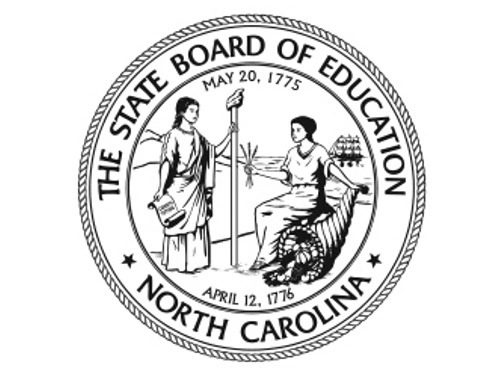
RALEIGH — Data presented to the State Board of Education shows mental health issues have increased in North Carolina school children following Gov. Roy Cooper’s pandemic school closures.
According to the results of the annual Youth Risk Behavior Survey (YRBS) administered in 2021 to students in middle school and high school, the percentage of students reporting thoughts of suicide and isolation are still high. The YRBS is optional and requires parental consent to administer.
Results of the 2021 YRBS showed 49% of high school students said they strongly agreed or agreed that they feel good about themselves. That’s an 11-point drop from 60% in 2019. In 2011, 80% said they felt good about themselves.
Feelings of isolation increased, with 33% of high school students saying they either agreed or strongly agreed that they feel alone. That’s an increase over 31% in 2019 and a big jump from a 19% reported in 2011.
Thoughts of considering suicide rose in high school students from 19% in 2019 to in 22% in 2021. Female students had higher rates than male students, rising seven points from 23% in 2019 to 30% in 2021. A decade ago, only 15 of female students said they considered suicide. The male student rate remained at around 14%.
Per the YRBS results, 48% of gay, lesbian and bisexual students considered suicide in 2021.
Other topics with decreasing trends noted in the YRBS include the percentage of students who were threatened or injured with a weapon on school property decreased from 7.2 in 2019 to 5.1 in 2021.
Reports of bullying also fell, likely due to school closures in 2020. In 2019 18.9% reported being bullied during 2019 versus 14% in 2021. When it came to electronic harassment and bullying online, percentages remained around the same with percentages coming in at 14.8% in 2019 and 13% in 2021
Similarly, the percentage of students who were in a physical fight one or more times during the 12 months before the survey remained high, but the percentage also dropped between 2019 and 2021, going from 23.7% in 2019 to 19.7% in 2021.
The YRBS is administered in odd years to middle and high school students in the state on a range of topics including mental health, nutrition, drug and tobacco use, bullying and some questions with sexual components aimed at high schoolers.
The details of the 2021 YRBS were previously reported to the North Carolina Child Fatality Task Force, a legislative study commission, in mid-December 2022 by Ellen Essick, the Section Chief for Healthy Schools & Specialized Instructional Support at the N.C. Department of Public Instruction.
In its annual report to the governor and to lawmakers, the task force noted suicide rates among teens had risen significantly since 2010. The data shows the percentage of suicide deaths per 100,000 in North Carolina children ages 10 to 17 in 2020 was higher than the national average.
In light of the YRBS data, the board will be taking steps to increase mental health supports for students across the state, including the ongoing “joint effort” between the N.C. Department of Public Instruction (NCDPI) and the Department of Health and Human Services (NCDHHS).
The joint effort involves the Unified School Behavioral Health Action Plan, which a state board press release describes as “strategies to help address the infrastructure, programs, and clinical services necessary to help students and their families recover stronger from the COVID-19 pandemic, enabling every child to be safe and healthy.”
According to the unified plan, a telehealth pilot program for student behavioral health called Project AWARE/ACTIVATE will be expanded. The current pilot is taking place in six school districts per the state board of education.
Additionally, the plan calls for NCDPI and NCDHHS to work together to secure the $15 million needed to fund those three efforts.
At the scheduled January meeting, state board members also voted to include asking for $100 million to fund 1,000 school nurses and social workers for the state’s schools as part of the board’s budget request to the General Assembly.
“We’re just barely at the tip of the iceberg of what the need is,” said Board Chair Eric Davis said in a statement. “That’s why it’s so important to get these requests in and get them filled and get professionals hired and working.”
In early January, NCDPI announced it had been awarded $17 million in grants from the U.S. Department of Education for addressing mental health issues.
The award from the U.S. Department of Education draws from a total of $280 million in mental health support funding announced last October. The funds stem from the Bipartisan Safer Communities Act (BSCA) and the Fiscal Year 2022 Omnibus Appropriation.
The grants include the Mental Health Service Professional Demonstration (MHSP) Grant and the School-Based Mental Health (SBMH) Grant Program and run through 2027.
“The funding will enable NCDPI to leverage partnerships with institutions of higher education and 15 school districts to increase the number and diversity of mental health service providers in high-needs schools,” according to a related NCDPI press release.
The “Project Adding Direct Support (ADS),” NCDPI’s Mental Health Service Professional Demonstration Grant will serve over 120,000 students in eight school districts: Pitt, Pender, Wayne, Harnett, Scotland, Alamance-Burlington, Charlotte-Mecklenburg, and Catawba.
The other grant is “Project FAST,” NCDPI’s School-Based Mental Health Grant. Approximately 73,000 students in six school districts will be served in Cabarrus, Davidson, Guilford, Randolph, Scotland and Stanly school districts.

